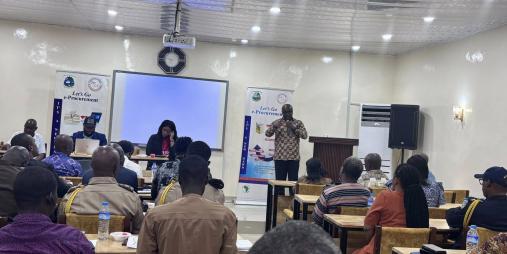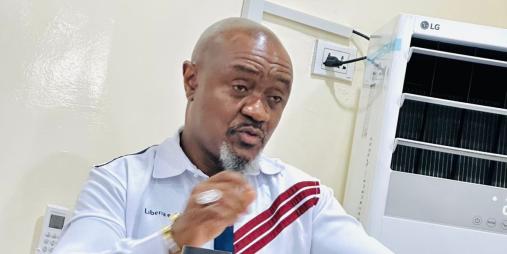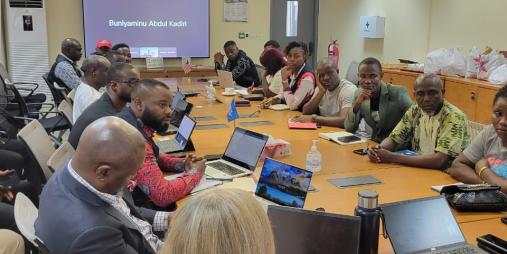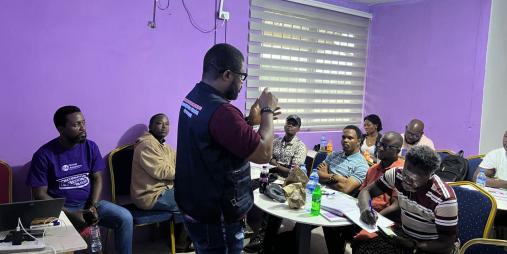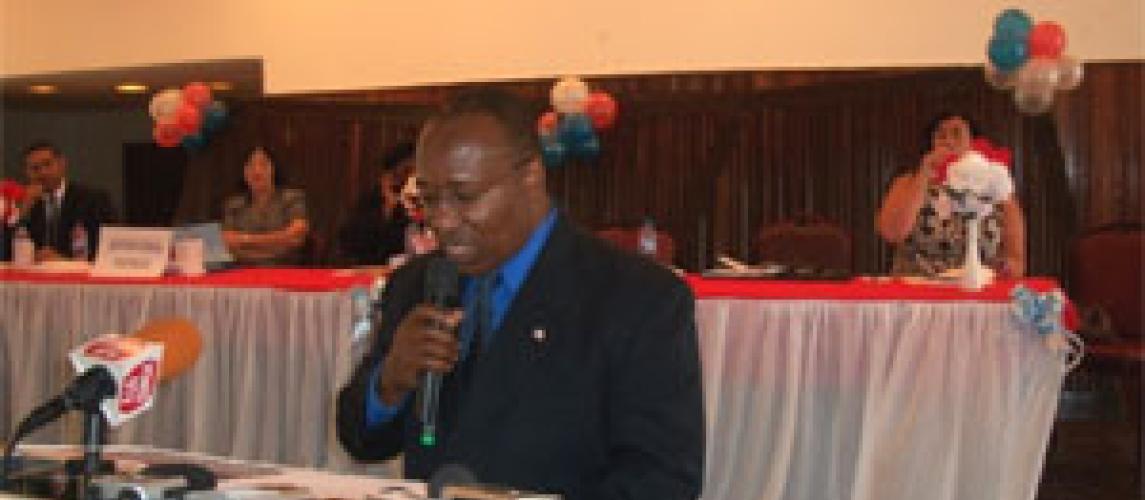
Chairman Belleh Identifies Areas Prone to Corruption
Professor Willie Belleh, Jr., Chairman of the Public Procurement and Concessions Commission (PPCC), is challenging every public institution as well as institutions in the private sector that are either concerned with or interested in public procurement and concessions to be familiar with the Amended and Restated PPC Act.
He said the Amended and Restated PPC Act is prescriptive and provide a framework in which public and private actors can operate, while at the same time limiting their discretion. ìAs you know, public procurement of goods, services, and works accounts for over sixty-three percent of the national budget. Additionally, as a concession country, the exploitation of our natural resources such as iron ore, gold, diamond, and timber are usually contracted out to foreign investors through the granting of concessions. Let me be bold here to say that these are two areas in our national life that are most prone to waste and fraud. This is why, in keeping with international best practices, we have opted to have a more prescriptive enabling legislationî, Chairman Belleh indicated.
The head of PPCC made the assertions Wednesday, October 13, 2010, at the Monrovia City Hall during the launching program of the Amended and Restated Public Procurement and Concessions Act of 2005, when he reaffirmed his commitment to raising the Commission to a new level of relevance and prominence in ensuring best value for procurement expenditures; in insuring long term economic value for concessions; and in mobilizing the Commission as an instrument of public accountability.
He assured stakeholders and partners that the Commission will act boldly in protecting the public interest and will insist on the best possible total cost of ownership of goods, services, and public works. Chairman Belleh pointed out that goods, services and works acquired should be in the right quantity; of the right quality; purchased at the right time, in the right place; and from the right source. ìCollaterally, we will also insist on competitive processes that lead to real economic values for concessions, hold public institutions and government officials more accountable for the decisions they make in public procurement as well as in granting concessions, and strengthen, through technical workshops, the understanding of procurement officers and members of procurement committees on the details contained in this revised Act and the regulations that come along with it.
Internally, he accentuated, the technical competence of the commission will be strengthened; the quality of work deepened; capacity for monitoring compliance enhanced; and the Commission resolve to enforce sanctions will be rededicated; and actions will be more proactive. He promised to partner with all public institutions in a constructive way and also reach out to the private sector and civil society organizations aimed at assisting the PPCC to monitor compliance of its policies and guidelines, and undertake an awareness campaign that will sensitize the people and institutions on the relevance of the Commission and how it promotes economic development.
ìOur procurement audits will go beyond paper trails and the review of processes. They will seek to authenticate the delivery of actual goods; services and works. In this connection, we will strengthen our collaboration with appropriate government institutions such as the Ministry of Finance and Government Auditing Commission in the area of sharing information. In the domain of Concessions, until the proposed National Bureau of Concessions is created and established, and following appropriate consultations, we will take on the responsibility of monitoring compliance of concession agreements independent of public concession entities. For this purpose, we have begun to engage some of our development partners to assist us develop our capacity in Contract Monitoring. On this point, let me pay a special tribute to two public institutions that have, as of today, been most supportive, most encouraging, most willing to assist the Commission. These two public institutions are the Ministry of Finance and the General Auditing Commission. To these two public institutions we are grateful. We look forward to more and better collaboration in the futureî he further accentuated.
Chairman Belleh used the occasion to thank President Ellen Johnson-Sirleaf for the leadership she provided in the process. He said the President personally chaired several meetings to deal with a number of difficult issues in the then proposed law. Chairman Belleh also acknowledged the contributions made by the World Bank, the United Nations Development Program, the International Senior Lawyers Program, the European Union, the United States Government, and the National Legislature geared towards developing an enabling legislation to guide the implementation process of the procurement reform agenda of Liberia.
